Connect
THIS NONPROFIT IS CHANGING TEENS’ LIVES WITH MINDFULNESS TRAINING
Mindfulness is being embraced by the mainstream, but most of the opportunities to learn about it are geared toward adults. That’s why barre3 CEO Sadie Lincoln asked Peace in Schools to lead a free community workshop in Portland for teens and parents. PIS is a nonprofit that offers the first for-credit mindfulness program in public high schools, helping young people practice mindfulness to better deal with everyday pressures and stressful situations.
“As a parent, I wanted to learn more about this nationally recognized program based right here in Portland,” says Sadie. “I figured if I was curious, other parents would be as well, so we decided to open up an exploration to our whole community. It was a hit with both parents and kids.”
Sadie and her 13-year old daughter, Audrey, attended the workshop. We interviewed Audrey to learn from her experience.
B3: Is mindfulness something you were already interested in before this workshop?
AUDREY: I had no interest in it at all. My mom had asked me to do mindfulness with her MANY times and I rejected her every time.
B3: Ouch! But love the honesty. What expectations about the Peace In Schools workshop did you have going into it?
AUDREY: I thought that it was going to be a dimly lit room with lots of candles, and that we were mainly going to do a meditation where we would sit in silence, sitting criss-cross applesauce, with our hands in the OK position. I knew this was important and that my mom was really looking forward to it. I was curious to find out what Peace in School was all about.
B3: Can you describe your experience?
AUDREY: It turned out the room wasn’t dimly lit—it was bright with natural light. I was expecting it to be more serious, but we kind of goofed around a bit—it was a relaxed environment. We first did some exercises with our partner. My mom was my partner. My mom and I actually got the giggles, but it didn’t matter because we were all having fun.
B3: What type of exercises did you do?
AUDREY: We started by complimenting our partner and then did Boat Pose together while holding hands and pressing our feet together. Next we went into the mindful part of the class. We started by doing three mindful steps. This is where with each step, you take in all your surroundings: what you hear, the weight of your feet, your body shifting, and anything else you observe around you. Next we took about a minute each to use our five senses: sight, smell, taste, hearing, and touch.
B3: How did you feel doing that exercise?
AUDREY: It was cool. It helped me stay in the present moment. My mind didn’t wander to the past or the future—it just stayed in the present. I noticed things I never would have noticed if I hadn’t done those exercises. I noticed fingerprints on the lightbulbs on the ceiling. I heard crows in the distance. I tasted the food I had early that evening. I noticed how tense I was in certain places in my body.
After that we took a couple minutes in silence. We relaxed and picked up on different things from our senses like we did before. It was actually really nice, and it wasn’t boring.
B3: Did the workshop open you up to using mindfulness in your everyday life?
AUDREY: Two high-school kids talked about their experience with Peace in Schools, and it made me want to do this program to help me deal with the stress of what I imagine high school will be like. If I can take a couple of mindful minutes if I’m stressed out while doing homework, it would help me to stay in the present and not worry about when the assignment is due and the future. This would help me enjoy learning more.
B3: Did anything about the workshop surprise you?
AUDREY: I was surprised the whole class wasn’t boring—including the meditating part. When I meditated I didn’t really feel anything. I felt empty in a good way. I just felt there. It’s hard to explain, but I liked it.
Another thing that surprised me is how fun it ended up being. I totally did not expect that at all. It felt good to talk to my mom like that. We had these exercises where we took turns talking to each other about certain topics like the other person’s strengths. It felt good to compliment my mom and receive compliments from her. I was surprised how hard it is to listen! We had to take turns listening without talking while the other person was sharing for about two minutes. It was really hard to listen without blurting something out. I had fun with her.
B3: What were the most helpful things you learned from this workshop?
AUDREY: I learned how to stay in the present moment. I learned that the present moment is important because it makes me feel grateful for me and my life. I learned that I am definitely going to want to do this in the future because I learned how to really cope with stress. I’ve had difficulty in the past few years with anxiety because of homework and school-based things. I’m a perfectionist. I’m getting better, but this is another way to let go of perfection and be present. Mindfulness is a great skill in life for me. Taking a few moments of my time to relax and take deep breaths is really helpful.
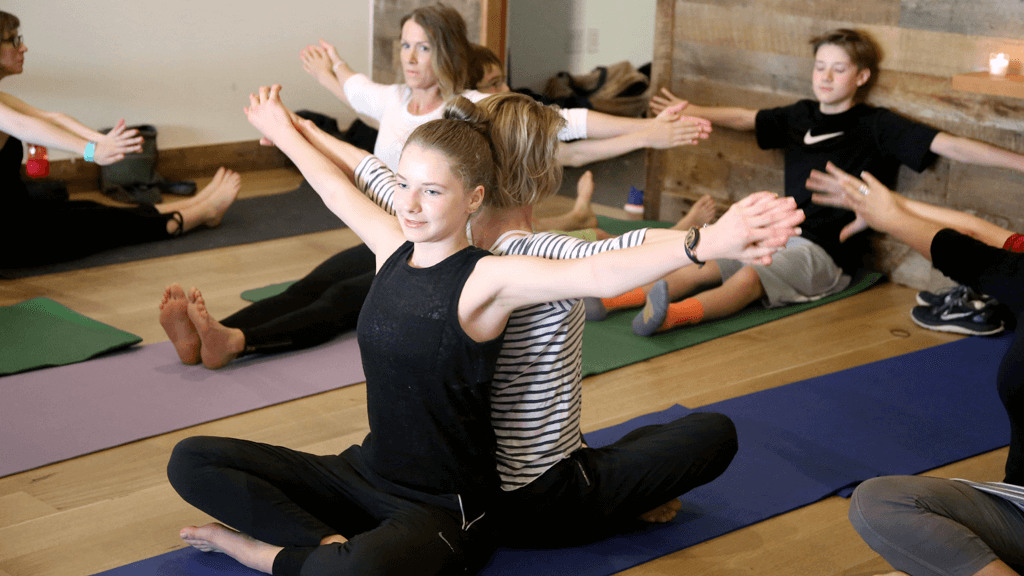
We love how Audrey started as a skeptic but fully embraced mindfulness by the end of the workshop. We can’t help but wonder how different high schools around the country would look if all kids had access to a program like Peace in Schools.
Here’s Audrey’s favorite exercise from the Peace in Schools workshop. Give it a try yourself or—even better—enlist your favorite teenager to try it with you.
Exercise: Tap into your senses.
What to do: Take one minute for each sense.
See: Look around and notice what you see. Do you see new things? Look around with focus and a new perspective, like you’re seeing it for the first time.
Hear: Just close your eyes and sit still and listen to everything around you. Do you hear new things? Do you hear things close to you, like your breath? Far away like a bird?
Smell: Just focus on breathing through your nose, and notice what scents you pick up.
Feel: Feel the weight of your body sitting. Feel where you are tense, and notice when you relax. Feel the clothes on your body. Feel the wind or the breeze from a fan.
Taste: Observe the taste that’s in your mouth, even though you aren’t eating. Taste is still a sense alive all the time.
Mindfulness is being embraced by the mainstream, but most of the opportunities to learn about it are geared toward adults. That’s why barre3 CEO Sadie Lincoln asked Peace in Schools to lead a free community workshop in Portland for teens and parents. PIS is a nonprofit that offers the first for-credit mindfulness program in public high schools, helping young people practice mindfulness to better deal with everyday pressures and stressful situations.
“As a parent, I wanted to learn more about this nationally recognized program based right here in Portland,” says Sadie. “I figured if I was curious, other parents would be as well, so we decided to open up an exploration to our whole community. It was a hit with both parents and kids.”
Sadie and her 13-year old daughter, Audrey, attended the workshop. We interviewed Audrey to learn from her experience.
B3: Is mindfulness something you were already interested in before this workshop?
AUDREY: I had no interest in it at all. My mom had asked me to do mindfulness with her MANY times and I rejected her every time.
B3: Ouch! But love the honesty. What expectations about the Peace In Schools workshop did you have going into it?
AUDREY: I thought that it was going to be a dimly lit room with lots of candles, and that we were mainly going to do a meditation where we would sit in silence, sitting criss-cross applesauce, with our hands in the OK position. I knew this was important and that my mom was really looking forward to it. I was curious to find out what Peace in School was all about.
B3: Can you describe your experience?
AUDREY: It turned out the room wasn’t dimly lit—it was bright with natural light. I was expecting it to be more serious, but we kind of goofed around a bit—it was a relaxed environment. We first did some exercises with our partner. My mom was my partner. My mom and I actually got the giggles, but it didn’t matter because we were all having fun.
B3: What type of exercises did you do?
AUDREY: We started by complimenting our partner and then did Boat Pose together while holding hands and pressing our feet together. Next we went into the mindful part of the class. We started by doing three mindful steps. This is where with each step, you take in all your surroundings: what you hear, the weight of your feet, your body shifting, and anything else you observe around you. Next we took about a minute each to use our five senses: sight, smell, taste, hearing, and touch.
B3: How did you feel doing that exercise?
AUDREY: It was cool. It helped me stay in the present moment. My mind didn’t wander to the past or the future—it just stayed in the present. I noticed things I never would have noticed if I hadn’t done those exercises. I noticed fingerprints on the lightbulbs on the ceiling. I heard crows in the distance. I tasted the food I had early that evening. I noticed how tense I was in certain places in my body.
After that we took a couple minutes in silence. We relaxed and picked up on different things from our senses like we did before. It was actually really nice, and it wasn’t boring.
B3: Did the workshop open you up to using mindfulness in your everyday life?
AUDREY: Two high-school kids talked about their experience with Peace in Schools, and it made me want to do this program to help me deal with the stress of what I imagine high school will be like. If I can take a couple of mindful minutes if I’m stressed out while doing homework, it would help me to stay in the present and not worry about when the assignment is due and the future. This would help me enjoy learning more.
B3: Did anything about the workshop surprise you?
AUDREY: I was surprised the whole class wasn’t boring—including the meditating part. When I meditated I didn’t really feel anything. I felt empty in a good way. I just felt there. It’s hard to explain, but I liked it.
Another thing that surprised me is how fun it ended up being. I totally did not expect that at all. It felt good to talk to my mom like that. We had these exercises where we took turns talking to each other about certain topics like the other person’s strengths. It felt good to compliment my mom and receive compliments from her. I was surprised how hard it is to listen! We had to take turns listening without talking while the other person was sharing for about two minutes. It was really hard to listen without blurting something out. I had fun with her.
B3: What were the most helpful things you learned from this workshop?
AUDREY: I learned how to stay in the present moment. I learned that the present moment is important because it makes me feel grateful for me and my life. I learned that I am definitely going to want to do this in the future because I learned how to really cope with stress. I’ve had difficulty in the past few years with anxiety because of homework and school-based things. I’m a perfectionist. I’m getting better, but this is another way to let go of perfection and be present. Mindfulness is a great skill in life for me. Taking a few moments of my time to relax and take deep breaths is really helpful.

We love how Audrey started as a skeptic but fully embraced mindfulness by the end of the workshop. We can’t help but wonder how different high schools around the country would look if all kids had access to a program like Peace in Schools.
Here’s Audrey’s favorite exercise from the Peace in Schools workshop. Give it a try yourself or—even better—enlist your favorite teenager to try it with you.
Exercise: Tap into your senses.
What to do: Take one minute for each sense.
See: Look around and notice what you see. Do you see new things? Look around with focus and a new perspective, like you’re seeing it for the first time.
Hear: Just close your eyes and sit still and listen to everything around you. Do you hear new things? Do you hear things close to you, like your breath? Far away like a bird?
Smell: Just focus on breathing through your nose, and notice what scents you pick up.
Feel: Feel the weight of your body sitting. Feel where you are tense, and notice when you relax. Feel the clothes on your body. Feel the wind or the breeze from a fan.
Taste: Observe the taste that’s in your mouth, even though you aren’t eating. Taste is still a sense alive all the time.


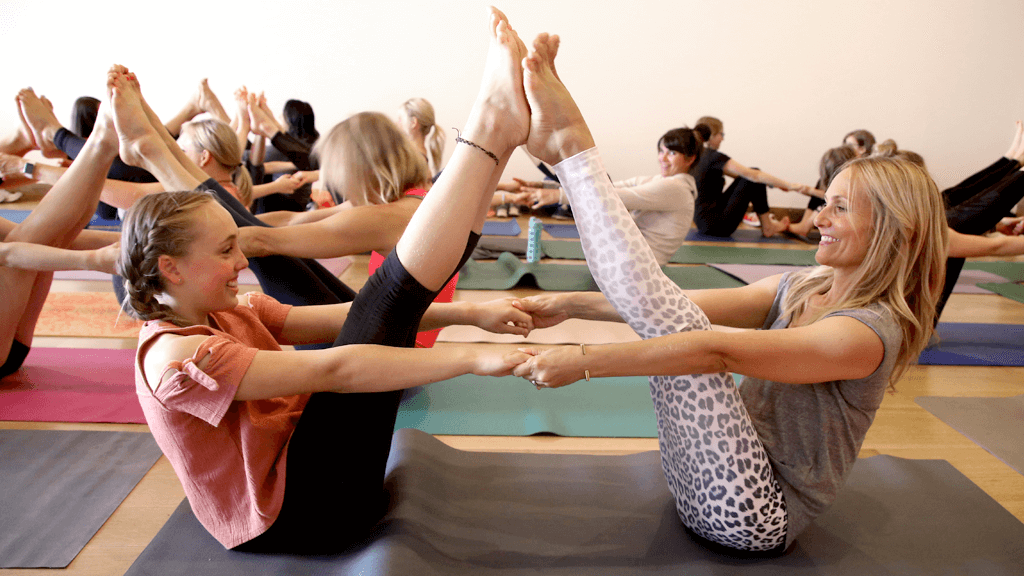


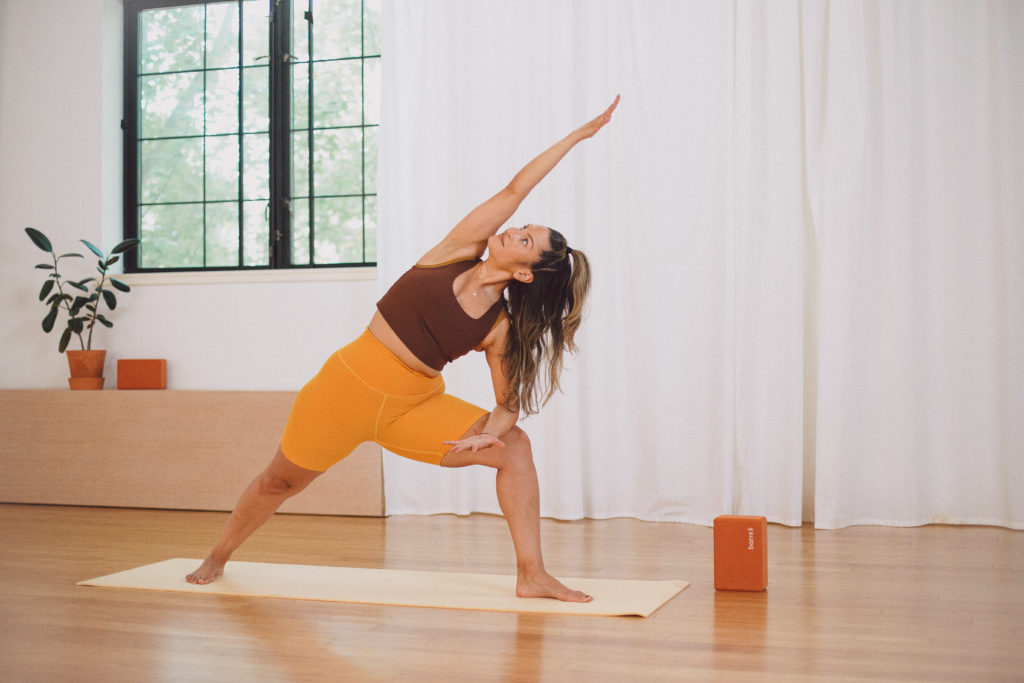
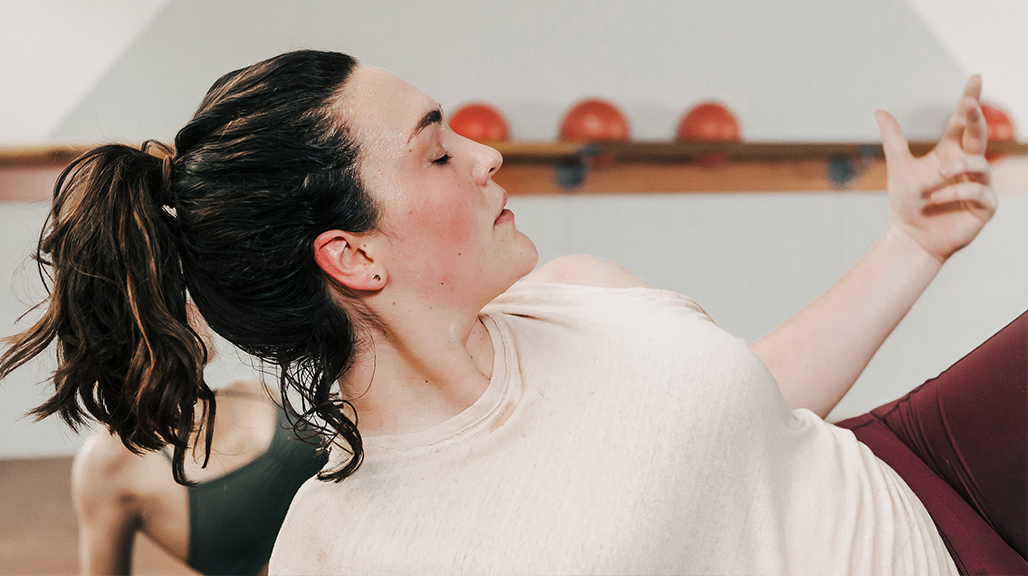
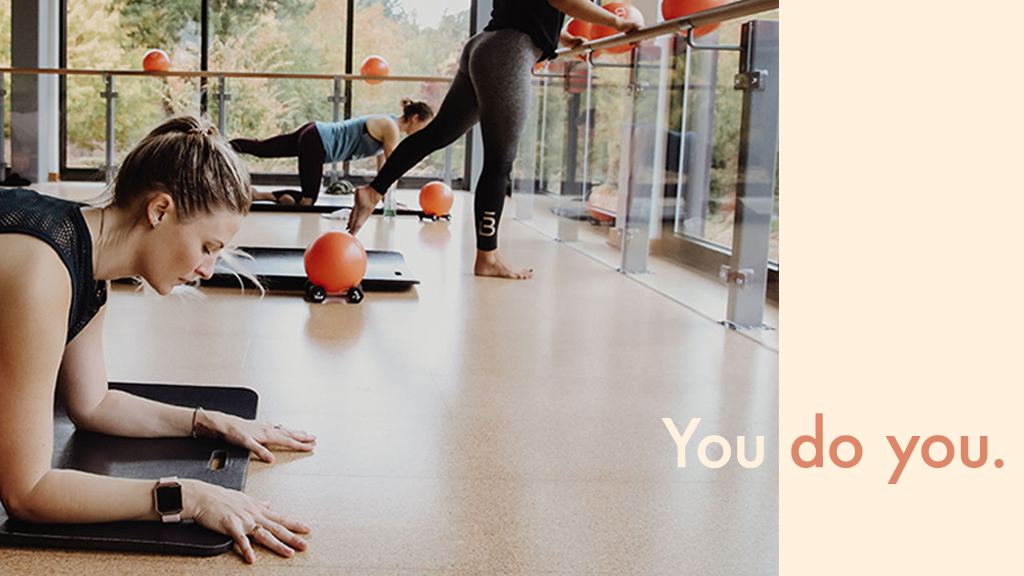



0 people have left a comment. Join the conversation!
View Comments